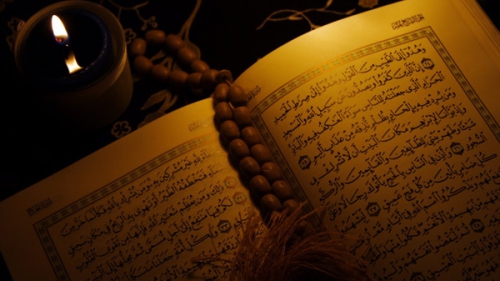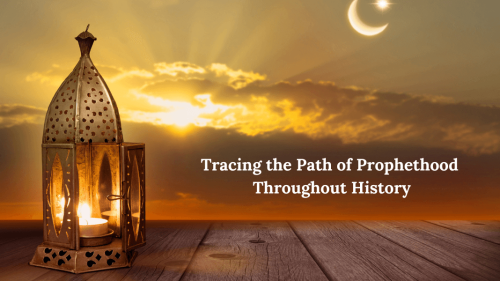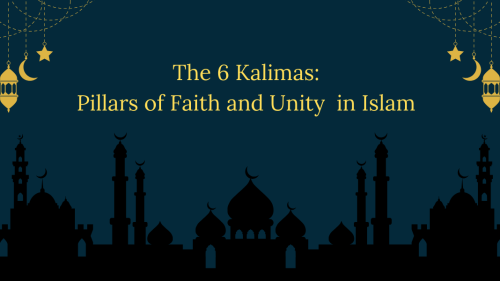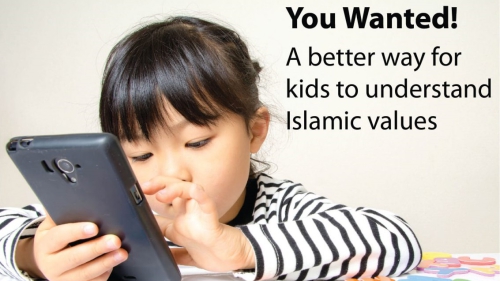Human Rights in Islam

According to the Qur'an, dignity of the children of Adam is a divine bestowal which is to be secured by all means, including the law and the state authorities, and is to be defended by all forces:
We have conferred dignity on the children of Adam, and borne them over land and sea, and provided for them sustenance out of the good things of life, and favored them far above most of our Creations. (Quran 17:70)
As a demonstration of this privileged position, God ordered the angels to prostrate themselves before Adam, the first human being. What distinguishes humans from other creatures is mainly their intellect and their free will to choose between doing good and doing evil. To fulfill a human potential, all obstacles and pressures must be removed from the way, and all means should be secured to maintain and develop our humanity. The dignity bestowed on humans in the Qur'an must be defended. It is the individual, social and universal responsibility of Muslims to guard human rights because oppression is an obstruction of God's will in His creation:
As for that (happy) life in the life to come, We grant it (only) to those who do not seek to exalt themselves on earth, nor yet to spread malevolence: for the future belongs to the God-conscious. (Quran 28:83)
It is the individual, social, and universal responsibility of Muslims, according to their faith, to protect the human merits and virtues of all the children of Adam, whatever their differences may be. Defending the human rights of any human being is a religious duty for a Muslim, who believes that any oppression is an obstruction of God's will and plan in His creation. Moreover, a Muslim believes that God has created all mankind equal as human beings, and no one can claim superiority in this respect, whatever his/her ethnicity, family, wealth or gender may be. The Qur'an teaches:
O humanity! Be conscious of your Lord, who has created you out of one living entity, and out of it created its mate, and out of the two spread abroad a multitude of men and women. And remain conscious of God, in whose name you demand [your rights] from one another (and before Him you will be accountable), and of these ties of kinship. Verily, God is ever watchful over you. (Quran 4:1)
O humanity! Behold, we have created you all out of a male and a female, and have created you into nations and tribes, so that you might come to know one another. Verily, the noblest of you in the sight of God is the one who is most deeply conscious of Him. Behold, God is All-Knowing, All-Aware. (Quran 49:13)
The only One who is above all humans is their Creator and Lord:
and there is nothing that could be compared with Him. (Quran 112:4)
At the inception of the belief in one God is the belief in the equality of all human beings, since those who believe in one God believe that all human beings are created by the one Creator. Thus, deeply rooted in the conscience of believers is the duty to maintain human rights and to practice equality in the process. Any discrimination against any individual or group about their basic rights as members of humanity is a challenge to the faith of believers, since for any human to claim superiority based on origin or power is contradictory to the belief in the One Ultimate Supreme Being:
...the All-Highest, who creates [everything], and thereupon forms in accordance with what it is meant to be. He cannot be called to account for whatever He does, whereas they will be called to account. (Quran 21:23)
A tyrant is against human rights and the One Ultimate Supreme Being as well:
Behold, Pharaoh exalted himself in the land, and divided its people into castes. One group of them he deemed utterly low; he would slaughter their sons and spare [only] their women, for behold, he was one of those who spread malevolence [on earth]. (Quran 28:4)
In the same chapter, the Qur'an states that those who will attain to happiness in the life to come, as it has been mentioned before, are those who don't seek to exalt themselves on earth, nor yet to spread malevolence; for the future belongs to the God-conscious (Quran 7:157). Thus, the Qur'an repeatedly emphasizes human rights and justice, and condemns injustice, aggression and oppression. It highlights the message of the Prophet Muhammad:
...enjoins upon them the doing of what is right and forbids the doing of what is wrong, and makes lawful to them the good things of life and forbids the bad things, and lifts from them their burdens and the shackles that were upon them. (Quran 7:157)
Justice can be concisely and precisely defined as the maintenance of human rights and equality:
Behold, God enjoins justice, and [going beyond justice to] the doing of what is magnanimous (and kind), and giving to one's kinsfolk; and He forbids all that is shameful and all that runs counter to reason [and morality], as well as transgression; He exhorts you [repeatedly] so that you might bear [all this] in mind. (Quran 3:195)
Any discrimination between men and women in rights or responsibilities is forbidden according to the divine justice- the same as any other discrimination:
And their Lord does answer them: I shall not lose sight of the work of any of you who works [in My way], be it man or woman ... (Quran 3:195)
And [as for] the believers, both men and women - they are in charge of [and responsible for] one another [and form together one body], they [all] enjoin the doing of what is right and forbid the doing of what is wrong, and keep up their prayers, and render the purifying [social] dues, and pay heed unto God and the conveyer of His Message. (Quran 9:71)
Divine justice can never be for Muslims only. It secures the rights of all human beings, whatever their beliefs may be. It is especially protective of the rights of belief and practicing one's belief... "Let there be no coercion in matters of faith" (Quran 2:256). Defending all houses of worship is legitimate and urged:
...for if God had not enabled people to defend themselves against one another, [all] monasteries and churches and synagogues and mosques in [all of] which God's name is abundantly exalted - would surely have been destroyed (ere now), and God will most certainly support one who supports His cause....(Quran 22:40)
Muslims are taught by the Qur'an to build their relations with others on kindness, while the minimum obligation which should be strictly observed is justice (Quran 60:8). They should always have in mind that no hostility stays permanently, and that if they follow God's guidance, their behavior may turn an enemy into a close friend:
Yet God may develop affection between you and those of them you felt were enemies, for God is All Powerful, Much Forgiving and Most Gracious. (Quran 60:7)
But good and evil cannot be equal; repel [therefore, evil] with what is better; and so between yourself and one with whom there was enmity [it may then become] as though he/she had [always] been a close friend. Yet [to achieve] this is not given to any but those who are patient and enjoy self-control; it is not given to any but those endowed with the greatest good fortune. (Quran 41:34-35)
Islam secures the human rights even for those who may violate the human rights of others, since two wrongs do not make one right. A violation should be stopped instantly, but the rights of the violator as a human being should be secured. Islamic law aims to fight the crime in its origin, not just to inflict punishment. Islamic penal law is enforced in order to prevent the sources of violation and transgression without social justice and public education for all. It is required that every possible effort be made to educate and rehabilitate an offender, not to destroy him/her. And finally, the Prophet states that a mistaken decision in acquitting a guilty person is better than a mistaken decision of punishing an innocent one. (From an authentic tradition of the Prophet repeated by Ibn Ali Shayba, al Tirmidhi, al-Hakim and al-Bayhaqi in al-Sunan, on the authority of Aisha).
Islamic civil and commercial law prohibits illegitimate and exploitative gains while protecting the principle which has been earned legitimately and legally before usurious additions:
...and give up all outstanding gains from usury...for if you do not, then know that you are at war with God and the Conveyer of His Message. But if you repent, you shall be entitled to your principals. You will do no wrong and neither will you be wronged.
The Islamic law of war requires an open declaration of the start of military operations, and limits fighting to the combatants only. As soon as the aggression itself is stopped and the aggressor submits to justice, justice should be maintained in relation to both parties equally:
....but then, if one of the two [groups] goes on aggressing against the other, fight against the aggressors until they revert to God's commandment; and if they revert make peace between them (both parties) with justice, and deal equitably [with them], for verily, God loves those who act equitably. (Quran 49:9)
Any of the enemy's army who asks for protection or shelter should be granted it, and may be returned to his camp if he so requests:
And if any of those who ascribe divinity to aught beside God seeks your protection, grant him protection, so that he might [be able to] hear the word of God [from you]; and thereupon convey him to a place where he can feel secure. (Quran 9:6)
The wounded and deserters from the enemy's army should not be attacked, but should be cared for until they are cured or repatriated.
Human rights as described by the divine message in Qur'an and Sunna were considered by the Muslim jurists to be the Avery goal of shari'ah. The jurists condensed Islamic law, as mentioned before, into the securing and developing human personality in five main areas: life, family, mind, faith, and property. The human rights covered by these five areas include the collective rights of groups and peoples as well as the rights of individuals; political and social rights have their place side by side. A collective effort to defend the powerless and the oppressed against a powerful oppressor is an essential Islamic obligation. Every right is considered a responsibility and an obligation. In addition to human rights being considered a collective responsibility of the ummah (the Muslim people as a group) and the authorities, every holder of a right must also struggle for him/her self to obtain, maintain and enjoy this right.
An accurate balance has to be maintained between basic spiritual and moral development and education on one side, and the protection of values by the law and the state on the other. A balance should be maintained as well between rights and duties:
Indeed, have We sent forth the Conveyers of Our Messages with all evidence of the truth; and through them We bestowed revelation from on high, and a balance [where with to weigh right and wrong], so that men behave with equity; and We bestowed from on high [the ability to make use of] iron, in which there is awesome power as well as [other] benefits for man; and [all this was given] so that God might mark out those who would stand up for Him and the Conveyer of His Message, even though He [Himself] is beyond the reach of human perception. Verily, God is Powerful, Almighty. (Quran 57:25)
Based on faith in God, the Islamic perspective on human rights is comprehensive and deep. When a Muslim fighter was asked by the Sassanian leader, Rustum, about the cause that he was fighting for, he simply answered, A God has sent us to transport human beings from the worship of one another to the worshipping of One God, from a narrow life to a wide world, and from the dominant injustice under other beliefs to the justice of Islam. (al-Tabari, in his reports about the battle of al-Qadisiyyah in 17 AH/ 637 CE)
This was the message of Islam in early times: a universal liberation and establishment of justice and maintenance of human rights. It is thus to maintain, develop and spread such an understanding of the divine message in our times.
Dr. Fathi Osman is a professor of Islamic Studies and has taught in several universities around the world. Among these universities are Al-Azhar University in Egypt, Houran University in Algeria, Ibn Saud University in Saudi Arabia, International Islamic University in Malaysia, Temple University, USC, and Georgetown University in America.
He is an author of several books and articles which include: Islamic Thought Vs. Change, Children of Adam: An Islamic perspective on Pluralism, Jihad: A legitimate struggle for moral development and human rights and Concepts of the Quran.
He is currently retired and is a resident scholar at the Institute for the Study of Islam in the Contemporary World in Los Angeles, USA.
Topics: Human Rights, Islam Values: Justice
Views: 10815
Related Suggestions
This a a very valuable article. I have e-mailed it to a non-Muslim and friend and her husband because we had a conversation about this issue over dinner two weeks ago. It is important for Muslims to make clear to non-Muslims the nature of justice and its central role in Islam. I often stress this point when giving da'wah. Jazaak'Allahu khairan for the efforts of Dr. Osman.
I am obviously a non muslim but I try to study Islam with a pure mind. This is my prognosis in summary (offcourse this is an extract) form as to the problem of human rights/development in Muslim country's. The key issue in summary is the lack of intellectual discourse and self review in Muslims/muslims country's and this goes against the following in Quran:
The Quran tell us about the inclinations of human soul. One of it is termed as Nafs-i-Ammarah (12:53) the others being (Nafs-i-Lowwamah (75:2) and Nafs-i-Mutmainnah (89:27)).
These inclinations of the soul are in turn influenced by a number of elements (Quran identifies 2). Two of them (complete section that contains other as well) are hastiness (17:11) and contentiousness i.e. not prone to accepting one's own faults or shortcomings (18:54).
I believe that Muslims/Muslim country's exhibit these 2 frailities indentified in Quran. Almost all without exception quickly (hastily) blames Israel/infidels for all shortcomings and on the flip side never do any internal investigations as to what is wrong.
I humbly submit to you that if Muslims/muslims country's follow the above as outlined in Quran they will be much better off in all aspects.
thank you
that was all i had to say
asalamu aleikum
The Arabic word used for vicegerent is khalifah. Meaning one who inherits or has dominion over the earth. Thus we as human being are held in high regard by Allah, swt. and when anyone of us abuses another it is as if they abused Allah.
If we stop for a minute and think about this, then the next person we see, we will assuredly treat them with best respect and honour because they are Allah's khalifah.
15:29 "..and (I) breathed into him of My spirit,.."
Imagine God breathing from His spirit into ours to create us. This then makes us doubly aware how important it is to honour our human bretheren, just as Prophet Mohammad pbuh said; "Love all humanity for if they are not brothers unto you in religion they are brothers unto you in humanity."
What a lofty ideal to live upto. But can we do so? Here lies the challenge for all Muslims to be an example for others.
The sad irony is that our leaders in Muslim world have lost the path to Allah - Quran is recited but not allowed to be discussed and explored. and when we question our leaders, most end up in prisons. All of humanity is in need of cleansing itself from hatred and toxic feelings if only they embraced the concept of ONE GOD.
Unity is humanity's lost heritage and we must reclaim it through God's Oneness. Tawheed.
Peace be upon all and the writer must be commended for touching on this subject. Salam,
Thank you for the wonderful article. It is well researched and well documented. It will be a valuable tool in my discussions with others.
To the other commenters: This article outlines the ideals of shariah and the Islamic code of conduct. Unfortunately the difference between ideal and real situations is the state of the world that we find ourselves in today, the difference between theory and application is often reality. Men and women, humans all, unfortunately will put their own ambitions before the good of their brothers and sisters, and once tasting power, crave more. This is not a new thing, it has been going on from the dawn of time to today. Why are people cruel to each other? Because it is in our nature to seek to better our own lot, no matter the cost. Our task is to subvert our nature to the will of Allah. Sometimes we are successful, sometimes not. This is why "muslim" countries are usually no better than the other nations in the world. Someone said, "Power corrupts, and absolute power corrupts absolutely". This is the world we live in, and always have. We ASPIRE to these ideals, and insha Allah, we will be able to choose leaders that can do a better job of meeting the expectation laid upon us. Surround yourself with those who make the grade, vote for leaders who make the grade. That is our task.
Do not worry about Why this person doesn't or why that country doesn't, worry that YOU do.
Wasallam
However explain to me why people are still being beheaded, stoned to death and having their hands cut off and being whipped instead of Educated?
Seems to me not enough is being done in these things, Consultation, Prayer, Volition and Action.
Maybe you can review my body of work in my web site. You can find it by searching for my name Anne Marie Elderkin Habibi in this search engine www.google.com Profesor your opinion of my body of work would indeed be important to me.
We hear about Western injustice iflicted on the muslim world but never about the injustices committed by muslims on their own people-Today's Sudan is a good example.

















